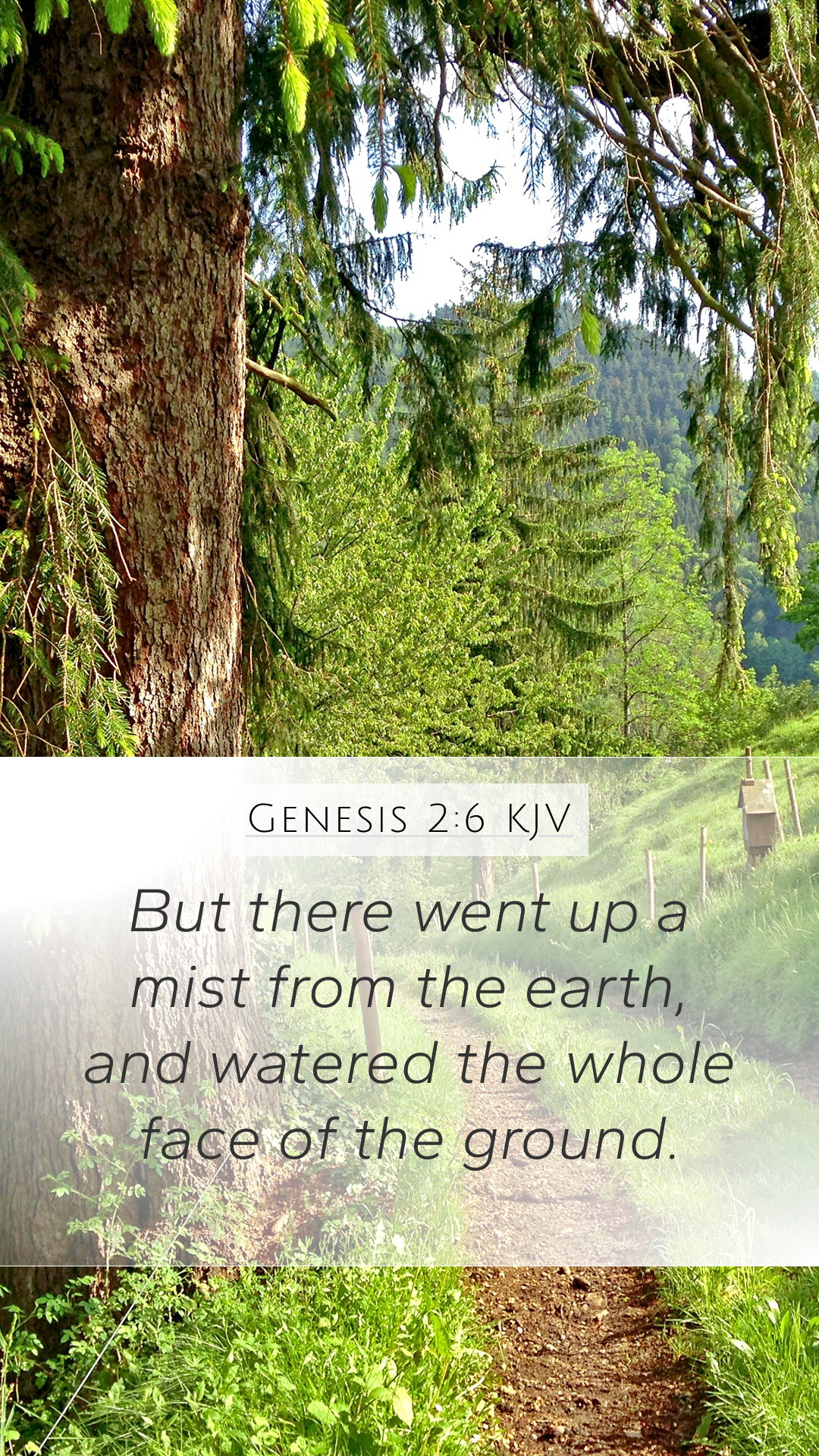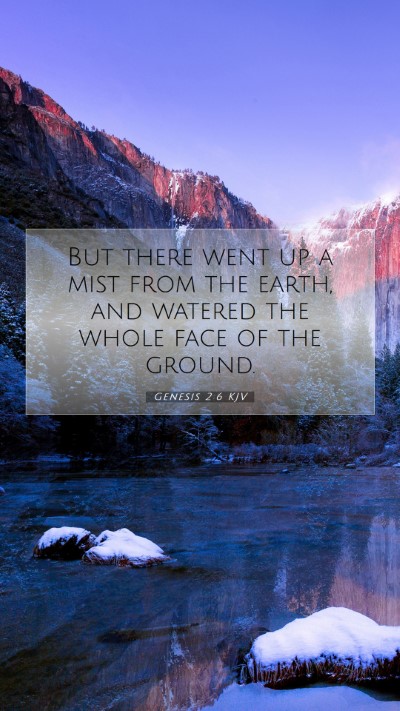Bible Verse Commentary on Genesis 2:6
Genesis 2:6 states, "But there went up a mist from the earth, and watered the whole face of the ground." This verse, while brief, carries significant meaning in the context of creation and God's provision for the Earth. Below is an analysis of this scripture combining insights from various public domain commentaries.
Meaning of Genesis 2:6
In understanding this verse, we find a harmonious explanation of creation, divine sustenance, and the initial state of the Earth. The mention of a "mist" indicates a natural process through which God provided water for the sustenance of the created world.
Interpretations from Commentaries
- Matthew Henry: Matthew Henry emphasizes that this mist was a natural phenomenon which shows God's provision and the interconnectedness of elements in the creation process. He notes that the mist watered the ground and nourished plants, highlighting God’s careful design in creation.
- Albert Barnes: Barnes expands on the concept of divine sustenance by stating that this mist symbolizes how God orchestrates natural laws for the benefit of His creation. The mist serves as a precursor to rain, illustrating how God's care extends to all aspects of the natural world.
- Adam Clarke: Clarke suggests that this phenomenon speaks to the early state of the Earth's environment, which may have been different from what it is today. He points out the significance of this process in understanding the climate and ecology established by God, emphasizing the intention behind every element of creation.
Theological Significance
The mist in Genesis 2:6 serves as an illustration of several key biblical themes:
- Divine Provision: The mist represents God's provision and care for His creation, ensuring that life could flourish on Earth.
- Interdependence of Creation: This verse demonstrates the interconnectedness of nature and divine intervention, where natural processes are directly tied to God's sustenance.
- Symbolism of Renewal: Mists and rain often symbolize renewal and the sustaining of life in Scripture, indicating God's continual involvement with His creation.
Cross References
Genesis 2:6 can be further understood in the light of other scriptures:
- Genesis 1:31: "And God saw everything that he had made, and behold, it was very good." - This emphasizes the goodness and completeness of God's creation.
- Psalms 104:10-13: "He sendeth the springs into the valleys, which run among the hills..." - These verses reflect God's ongoing supply and maintenance of life.
- Matthew 5:45: "For he maketh his sun to rise on the evil and on the good, and sendeth rain on the just and on the unjust." - This highlights God's impartial provision for all creation.
Application to Daily Life
Understanding Genesis 2:6 can enhance our appreciation for the natural world and lead to a greater recognition of God's continuous care. This verse encourages believers to reflect on the provisions of God and to trust in His faithfulness, especially in times of need.
Bible Study Insights
For those engaged in Bible study groups or online Bible study resources, Genesis 2:6 offers rich material for discussion on themes of creation, stewardship, and divine care. It’s a powerful reminder of the natural cycles set in place by God for the flourishing of life and can prompt deeper inquiry into the relationship between humanity and the environment.
Conclusion
In summary, Genesis 2:6 is more than a simple observation of nature; it encapsulates profound truths about God's providence and the inherent beauty of His creation. It invites us to reflect and engage in deeper study regarding the meaning of Bible verses and encourages us to apply these teachings to our lives. With the help of various Bible study tools and guides, individuals can gain a clearer understanding of this and other biblical texts.
By exploring the meanings and interpretations of such verses, believers are better equipped to interpret Bible verses, delve into the historical context, and apply scriptural teachings to their daily lives. Understanding Scripture in this way not only enriches personal faith but also promotes thoughtful discussions within Bible study groups.


